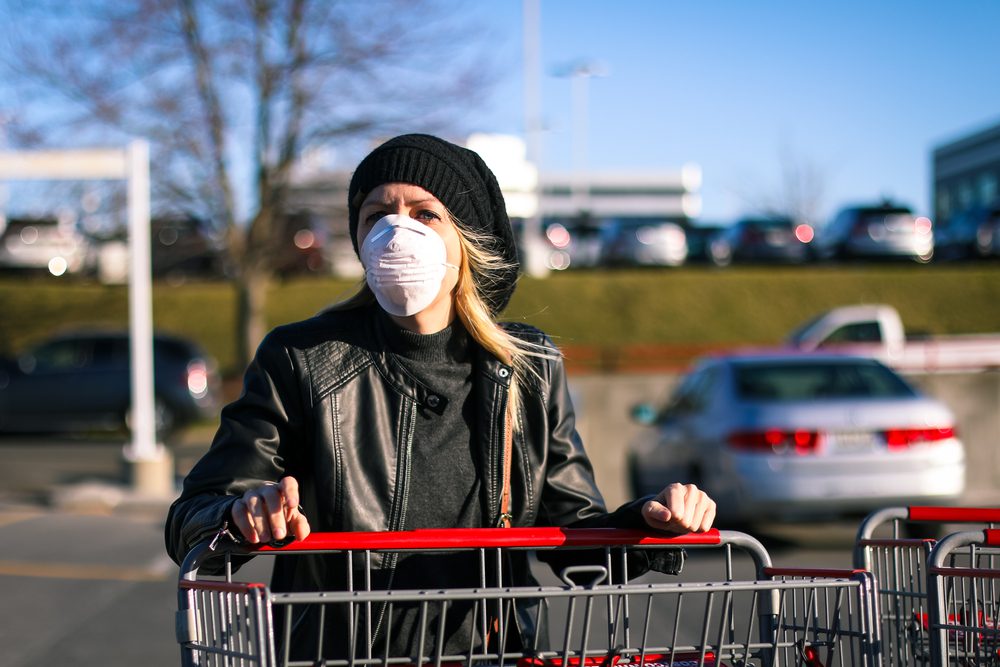
Pandemic Grocery Shopping Tips
People in almost every state in the United States have been instructed to stay inside and self-isolate to prevent the coronavirus from spreading.
Having to fight an unseen enemy can be quite stressful and scary. But despite all the shelter-in-place orders, you still have to go outside for essential activities such as grocery shopping. To help you be prepared and reduce risks while stocking up on your essentials, follow the advice of experts and stick to the following grocery store shopping tips.
If Possible, Opt for Delivery
If you can purchase your groceries online, either on Amazon Fresh, Instacart or another similar service, do it. It’s better than going outside and exposing yourself to potential risks.
“Grocery shopping could be challenging in times of viral outbreak as it exposes people to potential pathogens on surfaces and other shoppers that may be carriers,” said Tatiana Larionova, MS, LDN, CNS, a medical advisor for eMediHealth. “Online shopping is a great solution.”
Wipe Down Your Groceries
Online grocery shopping is better than in-store shopping, that’s for sure. But this does not mean you shouldn’t still clean the items you bought before putting them inside the fridge or pantry. “Make sure to spray and wipe outer surfaces of boxes and packages with a disinfecting solution,” Larionova said.
Use Water to Wash Fruits and Vegetables
Speaking of groceries, washing your produce with dish detergent or soap is not a good idea, even during the COVID-19 pandemic. “Drinking dish soap or eating it can lead to nausea, can lead to [an] upset stomach. It’s not a compound that our stomach is really built to deal with” said Benjamin Chapman, a professor and food safety specialist at North Carolina State University.
Water will do just fine. “Washing fresh fruits and vegetables with water is a must,” Larionova said. “You may even scrub them with a produce brush, but don’t spray them with alcohol or Lysol — you risk ingesting chemicals.”
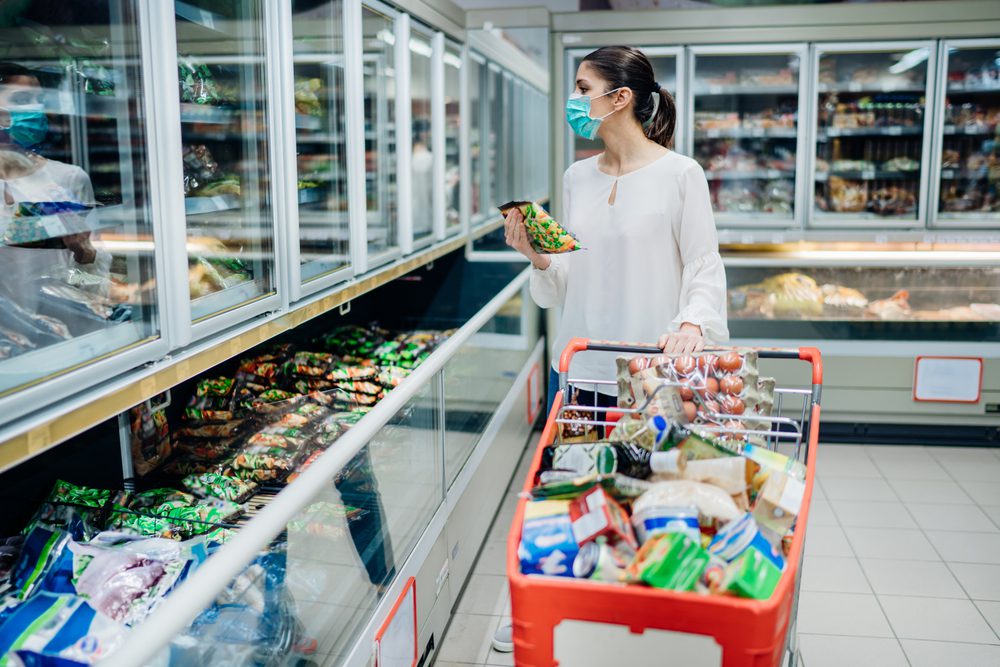
Wear a Face Mask When Grocery Shopping
If online shopping is not an option, don’t leave your house without a mask. “If you still need or choose to go to the grocery store, face masks may help protect you from inhaling viruses,” Larionova said.
If You Wear Gloves, Make Sure You Use Them Properly
“Gloves may help protect you from coming in contact with viruses. However, gloves need to be disposed of after using them at the store, and make sure not to touch your face while wearing them, as they can collect infection,” Larionova warned. In her opinion, gloves trick people into thinking they are safe and disregarding other important safety precautions such as maintaining a safe distance of 6 feet from other people or washing their hands constantly.
“Some people rely on them too much, forgetting to use preventive measures not to contract the infection from them,” Larionova said. “People tend to be more mindful without gloves, as they wash and disinfect their hands more often.”
Disinfect Your Shopping Cart
Many stores are constantly disinfecting their shopping carts and baskets but just to be on the safe side, do it also. You can either use disinfecting wipes now available in stores or bring your own. “Wipe shopping carts and baskets with a disinfecting wipe or cloth,” Larionova advised.

Shop for Groceries Once a Week or Less
You might see grocery shopping as your ticket out of the house but “try to limit your store trips to once a week to reduce unnecessary exposure to potential pathogens,” Larionova said. “Take an inventory of your pantry and fridge and make a shopping list to cover all the necessities.”
Calling Ahead to Ask About What’s in Stock Might Be Unnecessary
If you’re looking for an in-demand product like toilet paper or hand sanitizer, calling ahead to save yourself a trip to the store might seem like a good idea. However, this might not work out quite as you planned.
That’s because “you may try calling the store ahead of time to check for item availability, but be aware that their phone lines might be busy and usual procedures of updating the inventory may not be followed in a timely manner,” Larionova said. If you’re afraid you’ll find empty shelves, go to the store in the morning.
Go to the Store Right When It Opens or Right Before It Closes
To avoid meeting a lot of people but also make sure you find the items you want, “try to go grocery shopping during slow store hours — early in the morning, or late, right before store closing, to avoid large crowds of people,” Larionova said.
Stock Up on Nonperishable Items
To avoid making frequent trips to the grocery store and potentially expose yourself to the coronavirus, stock up on items with a long shelf-life.
“Make sure to stock up on nonperishable shelf-stable items like dry grains and beans, pasta, frozen fruits and veggies, canned vegetables, fruits, beans, pasta sauce and soups,” Larionova said. “These foods last a long time and will provide you with necessary nutrition when nothing else is available.”
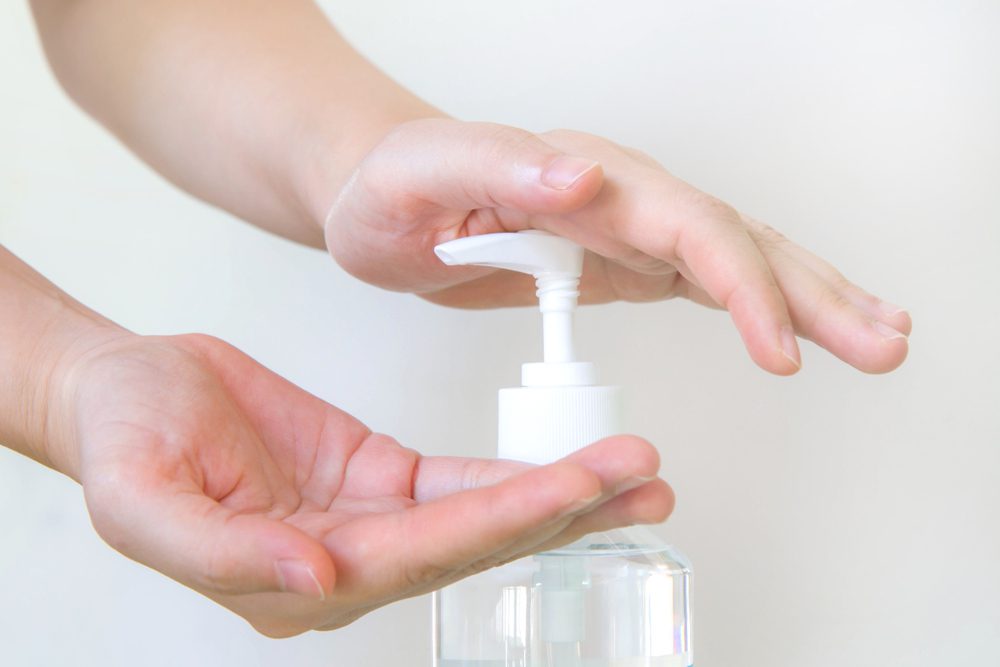
Disinfect Your Hands Before and After Leaving the Store
You probably heard this over and over again but the most important thing you can do to prevent catching the virus or possibly giving it to others if you are asymptomatic is to wash and disinfect your hands.
“The fewer items you touch (and don’t buy), the better,” Mike Golpa, a hygiene and sanitation expert and the CEO of G4byGolpa, said. “Disinfect your hands before entering the shop and after leaving.”
Use a Contactless Payment Option
The general idea is to touch as few things as possible. This also includes money. Therefore, at the checkout counter, “everything contactless is the safest these days,” Golpa said. “Contactless payment with a phone, e.g. ApplePay, is the best option. Definitely avoid cash. Cards are in the middle: be careful with the pin pad.”
If you choose to pay with a card, don’t forget to disinfect it after use.
Don’t Overbuy
People are panic-buying a lot of things they don’t really need only to throw them away when they spoil. “Don’t stock up too much,” Golpa said. “It’s adequate to have food for two weeks — primarily non-perishables. Try to not waste any food before buying more.”
Find out Your Store’s Return Policy
If you’ve fallen victim to the panic-buying trend and ended up with more in-demand items than you actually need, chances are you’re gonna be stuck with them. That’s because retailers, such as Costco, are no longer accepting returns of toilet paper, sanitizing wipes, paper towels, rice and bottled water.
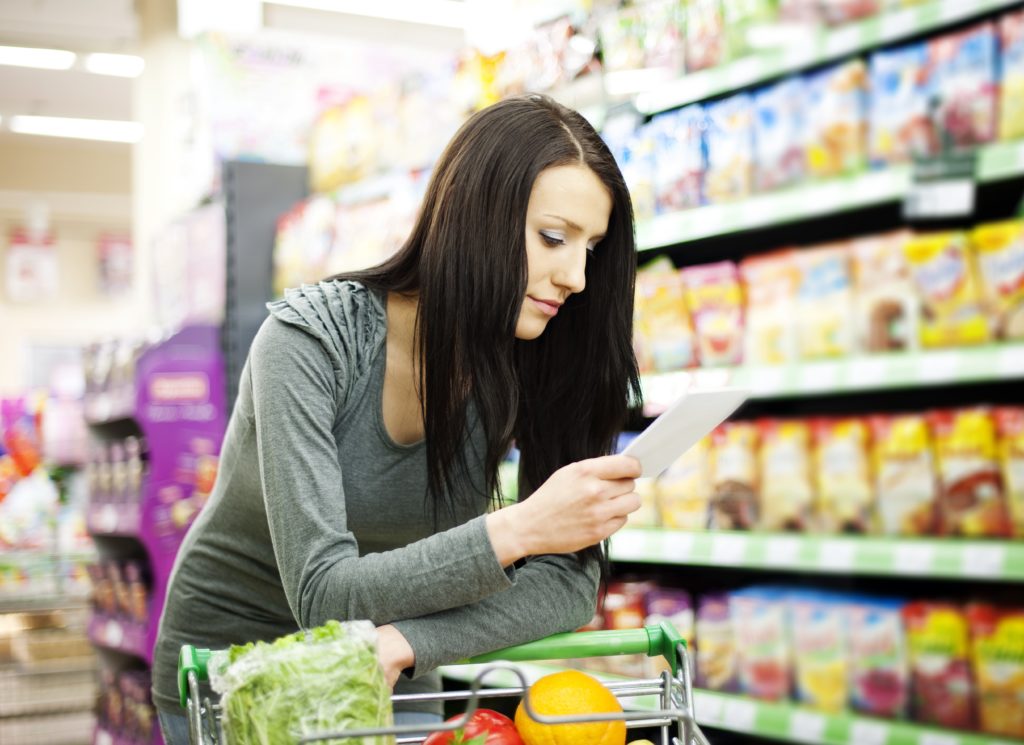
Make a List at Home to Spend Less Time in the Store
The less time you spend inside a grocery store, the fewer chances of exposing yourself to the virus. If you want to avoid wasting your time in search of products, make a list at home of things you need to buy and stick to it.“Make a list at home so you don’t spend in the store more time than necessary,” Golpa said.
than that, instead of using your phone to make the list, write everything down on a piece of paper that you can throw away after you’ve finished shopping. “The less you can touch your personal items in public spaces, the better,” said Sauer.
Stay Away from Crowded Aisles
Either out of ignorance or simply without realizing, some people will not comply with the social distancing rules as they should. For this reason, you should pay attention to your surroundings and keep the required distance between you and other shoppers. So, no crowded aisles!
“Avoid racing to get the last of an item on the shelf,” Dr. Craig Hedberg, a professor in the environmental health sciences division of the University of Minnesota’s School of Public Health, told Time. “Follow guidelines that may be posted at the store. Be patient.”
Shop Alone
Experts recommend limiting the number of people in your household who could be exposed to the coronavirus by designating only one person to go grocery shopping. If possible, don’t take your children with you to the store.
“We don’t really understand how kids transmit the virus,” Dr. Lauren Sauer, an assistant professor of emergency medicine at Johns Hopkins University School of Medicine, told Time. “It could be that little kids are sick and we just don’t know, so you want to reduce their interaction more broadly.”
Wash Your Hands as Soon as You Get Home
If you are driving to and from the supermarket, you know you should disinfect your hands before touching the car’s door handle, steering wheel and other things inside the car. Also, you need to wash your hands thoroughly as soon as you get home. This means using soap and water for at least 20 seconds or for as long as it takes you to sing “Happy Birthday”.








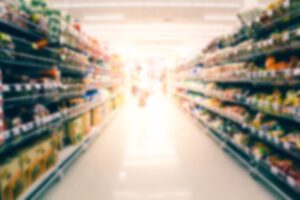
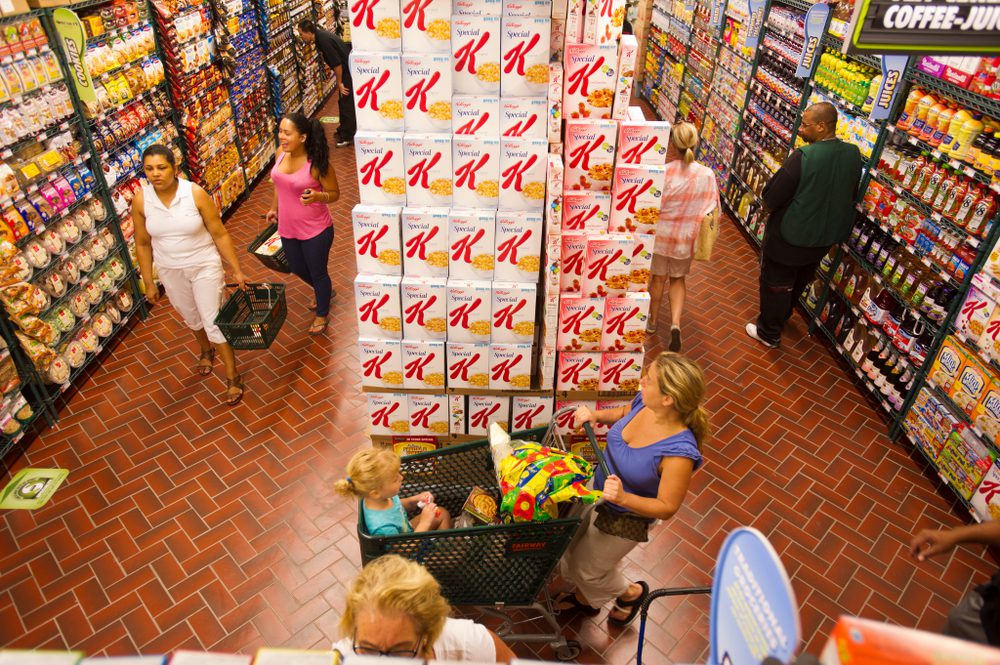
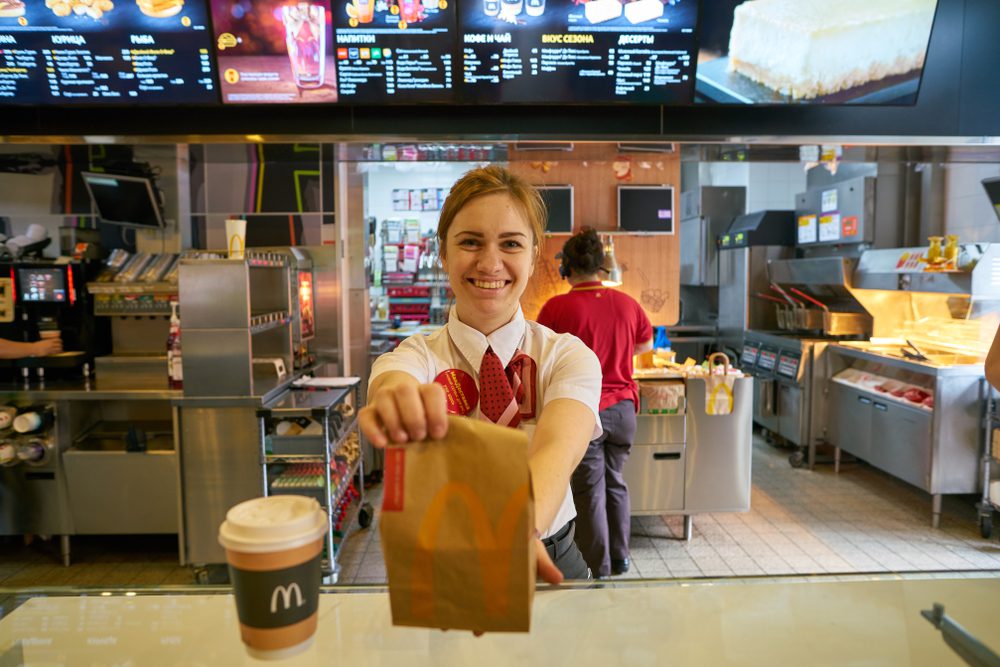
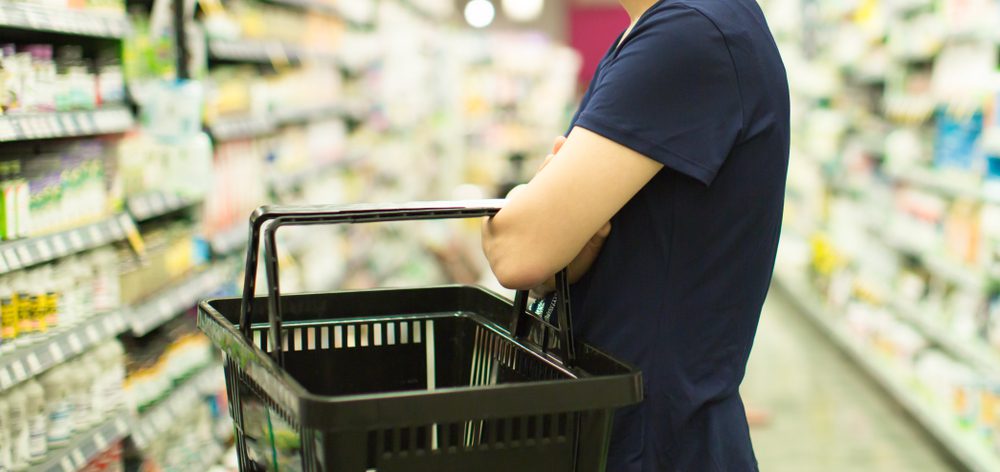













1 thought on “Grocery Store Shopping Tips During the Coronavirus Pandemic”
Very good advice hope all follow to try to stop this virus in its tracks soon !!